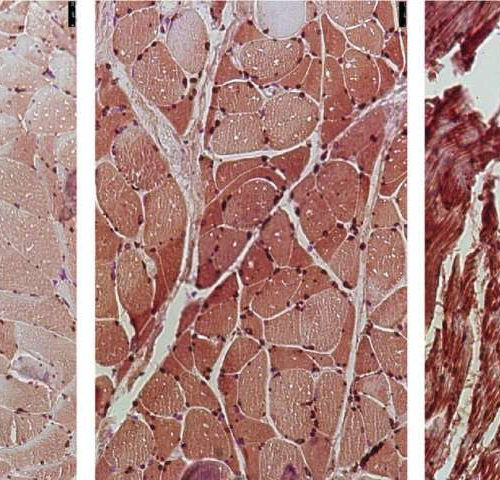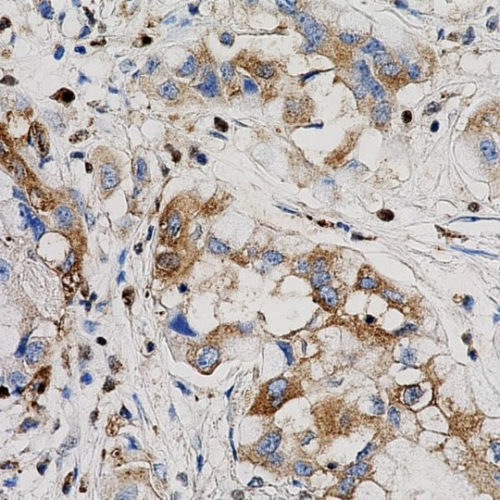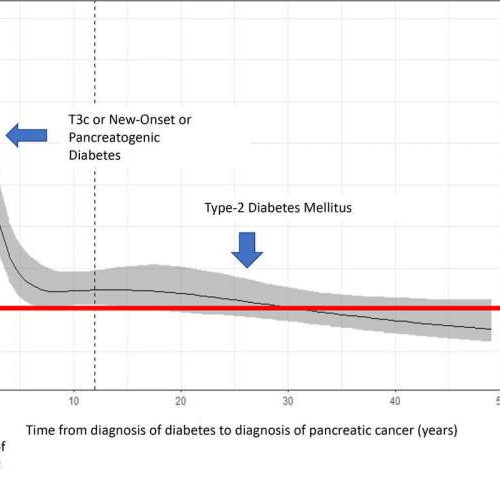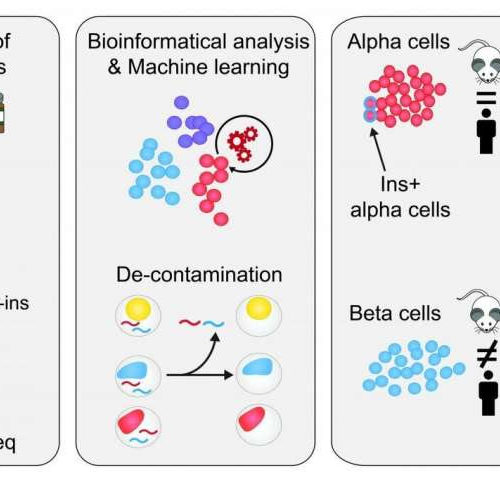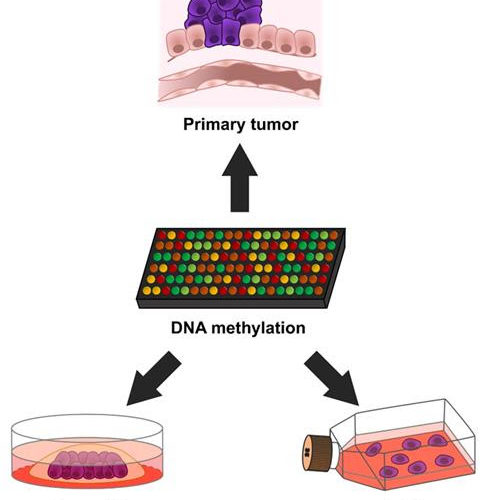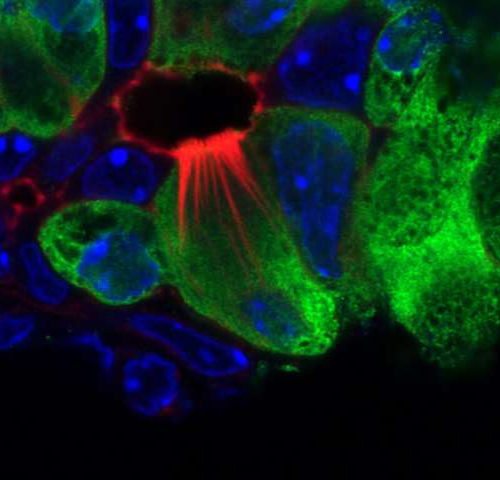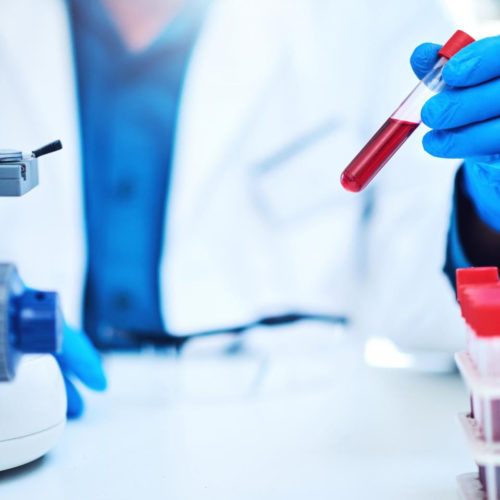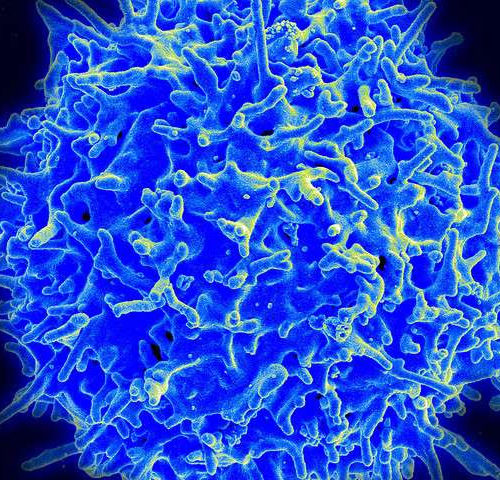by Rockefeller University Press Researchers at the University of Nebraska Medical Center have identified a key cell signaling pathway that drives the devastating muscle loss, or cachexia, suffered by many cancer patients. The study, which will be published May 22 in the Journal of Experimental Medicine, suggests that targeting this pathway with a drug already...
Tag: <span>Pancreatic cancer</span>
Activating an Estrogen Receptor Can Stop Pancreatic Cancer Cells from Growing
Penn study shows GPER activation in mice can also make tumors more visible to immune system. Activating the G protein-coupled estrogen receptor (GPER) – a receptor found on the surface of many normal and cancer tissues – has been shown to stop pancreatic cancer from growing, but may also make tumors more visible to the...
Study confirms diabetes type 3c as early manifestation of pancreatic cancer
by The Spanish National Cancer Research Centre As biomedical sciences incorporate increasingly sophisticated methodologies and technologies, the understanding of diseases improves. Diabetes is a clear example, since new classifications are being added to the traditional classification into type 1 and type 2 diabetes; these new classifications are based on genetic and molecular characteristics that improve...
Single-cell RNA seq developed to accurately quantify cell-specific drug effects in pancreatic islets
by CeMM Research Center for Molecular Medicine of the Austrian Academy of Sciences The pancreas is an abdominal organ that produces digestive enzymes as well as hormones that regulate blood sugar levels. This hormone-producing function is localized to the islets of Langerhans, which constitute clusters of different endocrine cell types. Among those are beta cells,...
Cancer research breakthrough as DNA behavior is uncovered in 3D models
CREDIT: DR MANEL ESTELLER Scientists have used 3D models to break down the DNA behavior of cancer cells, in a breakthrough new study which could revolutionize treatment for the disease. In what is a first for science, a research team led by Dr Manel Esteller, Director of the Josep Carreras Leukaemia Research Institute (IJC), demonstrated...
Metal in urine provides potential noninvasive test for pancreatic cancer
by Earth Institute, Columbia University New research has revealed that the signature of metal ions present in urine samples is an accurate indicator of pancreatic ductal adenocarcinoma (PDAC), one of the deadliest types of cancer. The discovery could signal the possibility of a new and completely noninvasive test for pancreatic cancer, of which PDAC is...
Mysterious tuft cells found to play role in pancreatitis
by Salk Institute Persistent inflammation of the pancreas (chronic pancreatitis) is a known risk factor for developing pancreatic cancer, the third-deadliest cancer in the United States. Tuft cells—cells sensitive to chemical (chemosensory) changes typically found in the intestines and respiratory tract—had previously been discovered in the pancreas, but their function has largely remained a mystery....
Blood test may help doctors catch pancreatic cancer early
By PENN MEDICINE PHILADELPHIA – A blood test may be able to detect the most common form of pancreatic cancer while it is still in its early stages while also helping doctors accurately stage a patient’s disease and guide them to the appropriate treatment. A multidisciplinary study from the University of Pennsylvania found the test...
Pancreatic cancer hidden in plain sight
Pancreatic cancer does not respond to certain anticancer treatments that boost immune responses. A mechanism active in tumour cells that contributes to this evasion of immune targeting has been uncovered. A consistent hallmark of pancreatic cancer is the inability to treat it with immunotherapy — an approach that harnesses the body’s immune response to target...
Starving pancreatic cancer of cysteine may kill tumor cells
by Columbia University Irving Medical Center A new study from Columbia University Irving Medical Center and the Herbert Irving Comprehensive Cancer Center suggests a compound in development for a rare kidney stone disease may have potential against pancreatic cancer. The compound starves tumors of an amino acid, cysteine, which was found to be critical to...

